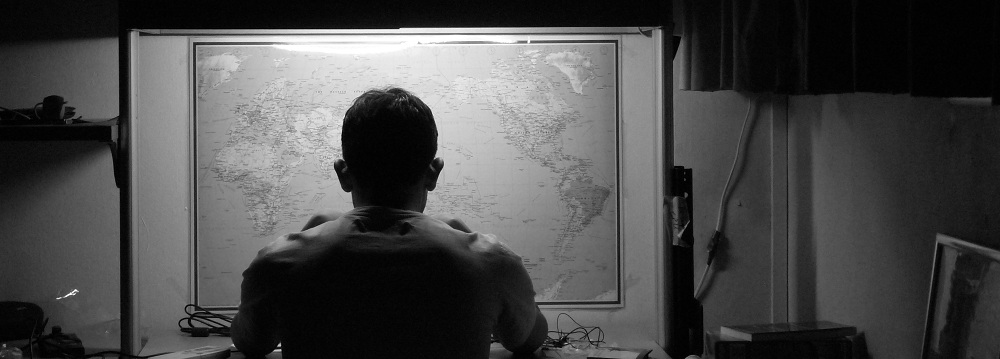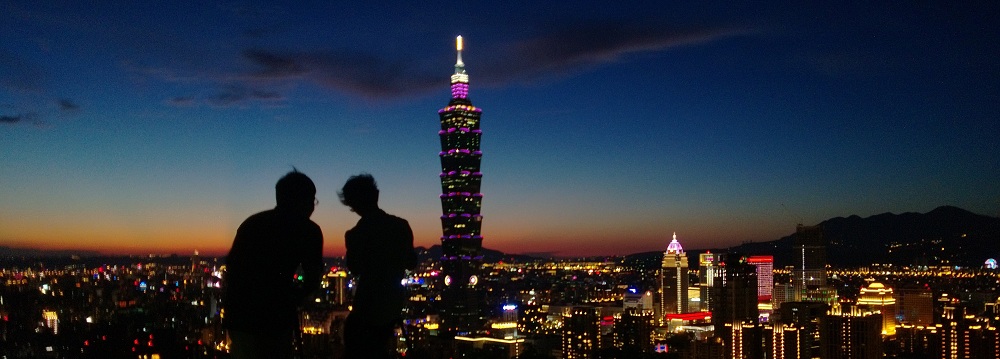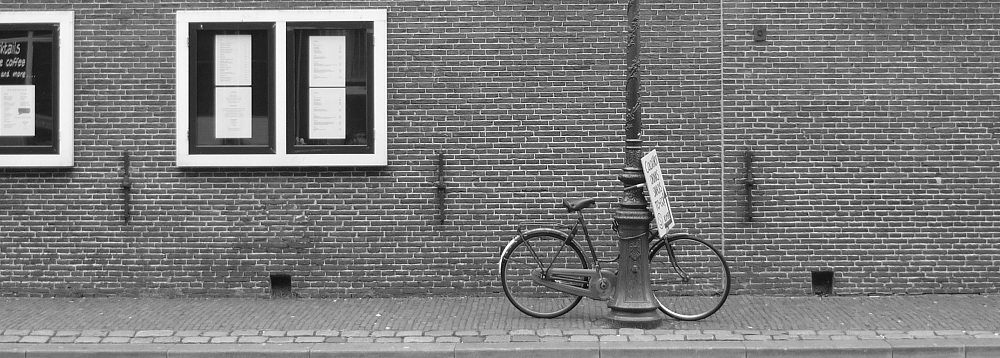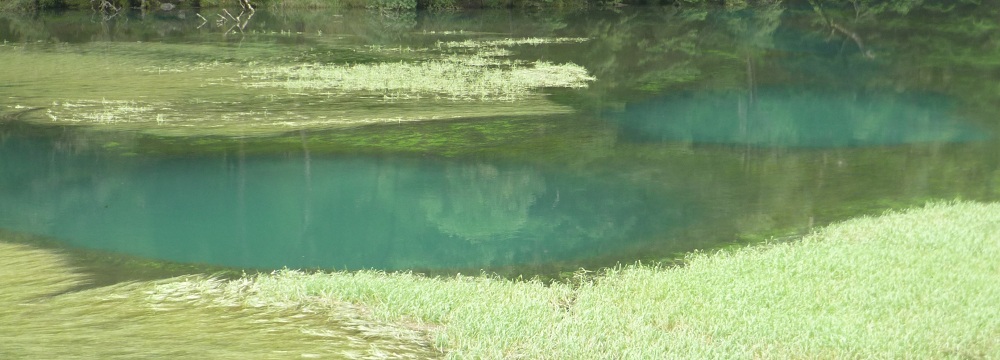I wonder how other people's memories sound or look like. Most of my memories are devoid of any self identity. When I play them in my mind, it seems as if the events took place without me. A lot of them are associated with nature and a romanticized view of physical exertion - sleepless nights of endless strolls, mountains I hiked or places I cycled to. However profound, they seem very impersonal to me in a certain way. My presence doesn't seem to have disrupted the usual course of events, though I know that's not true at all. I wonder if other people see themselves as distinct entities in their memories.
我很好奇人們的個別記憶怎麼樣。我多半的記憶似乎沒有自我認同。我的很多難忘的回憶是關於大自然跟浪漫化體力消耗的事 :不斷散步的不眠之夜,山上的景色,環島的風景。連深厚的記憶也沒有私人的元素。好像我的出席沒有干擾原本的過程,雖然這並不是對的。不知道別人回憶時看得見看不見自己。
Hong Kong 「香港」
I have always had this tendency to dissolve my identity into a place, person, activity or an event. Failure to do so has led to an increase in cognitive dissonance followed by unpleasant memories. It happened to me in Hong Kong. Hong Kong is a place I felt very dissociated with, and I remember my time in Hong Kong being full of dissatisfaction and restlessness. I was never able to emotionally attach myself to anything or anyone there. I could never understand how their individuality interfaced with the society. It was loud, it was claustrophobic; yet nobody seemed to have any willingness to talk to each other.
我有跟周圍的氣氛和元素融入的傾向。如果不這樣做,就會造成認知失調而不愉快的回憶。我要舉例香港:我對香港找不到什麼共鳴,無法那裏安頓下來。我探索很多地方可是不能與什麼人或是地方感情連結。我不了解他們的個人個性怎麼跟社會結構搭界。香港的區域又吵又擠,可是好像沒有人願意跟別人聊。
Surprisingly, my memories associated with the place get sweeter with time. Memories of its garish signboards spangled with neon lights jutting out of buildings, a sudden bloom of colorful umbrellas on a crowded street as rain came lashing down and its seedy karaoke bars in dingy lanes have an intoxicating nostalgia. I must admit my narrative of Hong Kong has been largely shaped by Wong Kar-Wai's movies than personal experiences. It's wonderful how media affects personal experiences.
竟然我在香港的記憶愈來愈演變溫暖。那邊多彩色的近郊,伸出來的扎眼品牌版,突然下雨而吐豔的雨傘,昏暗小巷裡勾當性的店真令人陶醉。我承認我對香港的觀念感受到王家衛的作品的龐大的影響,連體驗的回憶也被「污染」了。藝術不是很有影響潛力嗎?
Solitary Exploration vs Social Participation
Social Participation 「社交」
There are certain cities which evoked in me a strong urge to socialize and talk to people more than any other place. Two examples that come to mind instantly are Hong Kong and Seoul. The impressions of these cities on my mind are completely different. While Hong Kong was an attack on my senses, my entry into Seoul was mellow and low-key. However, both these cities were structured in a way that in order to integrate yourself into their character, you had to be part of a group. The more I explored on my own, the lonelier I felt. There seemed to be a large disconnect between the veneer of an inanimate city and the dynamism of its living members. In other words, it was really hard to establish a connection between my surroundings and the people. It was hard to infer what the people thought or behaved like just using the clues of elements of a cityscape.
旅行時,某些城市促使我跟人們相處。香港跟首爾是最好的例子。這兩個城市給人的觀感是相當不同的。香港的塵囂對我太有壓,首爾則是較順利與低調。反正兩個都因為更瞭解他們的過程而需要你跟當地人相處。我單身越探索越覺得孤單。這些城市的外表跟人們的動感的差異很大。就是說建立市容跟人民生活過程的關係是不容易的事。按照市容的線索不容易演繹人民的生活過程。
Solitary Exploration 「獨立探索」
My experience in Hualien lies in sharp contrast with that of Seoul. I got into the rhythm of the city so comfortably that I didn't feel much need for social participation. It had a certain openness to it. There was a surrealism in Hualien that could not to be found elsewhere. A sleepy, laid back town surrounded by gorgeous scenery, it had retained its antiquity and charm. There was a sense of deep comfort walking through its sparsely populated streets. The mild sound of footfalls coupled with smooth, uninterrupted strokes of wind had an ineffably salving effect. I felt a telepathic connection with the local populace. It felt so easy to get a cursory glimpse into the lives of people living there. I had a similar experience in cities of Taitung and Tainan. During my time in these cities, it felt as if I had a tacit understanding with the general populace here.
我在花蓮的經驗是完全不同的。我一個人很順利就跟那個地方找到共鳴了。它有很鬆綁與超現實的感覺。位於山麓的那個很悠閒的小鎮維繫了自己的傳統性質和魅力。行人腳步的輕輕聲音和一陣一陣的風令人安舒。我很容易跟旁人連結,好像跟鄰近有默契。我在台中和台南也有類似的記憶。
The Charm of Unwelcoming Cities 「不易連結的城市的韻味」
Certain cities have a poetic charm despite being tough places to live in.
I guess such places create a strong dissonance in the minds of people, the dissolution of which requires either a strong emotional attachment by getting involved with the society or creating a world of fantasy out of it.
Cities like Hong Kong and Kolkata are probably good examples - these cities have served as a backdrop in many artworks. Both these cities are not immediately likable. It requires time and effort to develop a liking. However, their residents seem to nurture a strong bond with their hometown.
即使某些城市是不容易適應的,不過它們很有詩意。我認為因為這種地方引起不相容的感覺,爾後藉以消除心理衝突我們不是遷就那個地方就是藉由藝術發洩我們的不調諧的感覺。例如說香港與加爾各答;不少作品是以該城市為背景做的。這種城市是難以立刻愛上的,一個人需要花多一點時間了解這種地方。不過這裏的市民向他們的老家有很密切的關係。
Cities with an Undertow 「有暗潮的城市」
Certain cities have a very active stratum of society which stays hidden behind a largely indifferent facade; Chinese cities like Hangzhou and Chengdu for instance. To an untrained eye, it's hard to discover anything out of the ordinary; it's even harder to dive into the underground and explore the chaotic dealings that run these cities. These are the cities which are really easy for me to forget since I wasn’t able to look beyond their veneer. I vaguely recall what I did in Hangzhou. Even a mention of the city fails to bring any fond memories to mind. However these cities are rife with history and culture, and are shining examples of urbanization interwoven with homespun nostalgia.
Unlike Beijing and Shanghai, where the cultural entities are prominently laid out for any traveler to gratify themselves without much effort or context, such cities require a visitor to already have a narrative so as to appreciate the richness of life behind their nondescript infrastructure.
I will perceive things in a totally different light and depth when I revisit these cities.
一些城市在一個淡漠的形式下藏很好動的社會階層。舉例來說大陸的城市杭州和成都。你對這種地方不熟的話可能看不出來什麼非凡的事。探究這裏的混亂過程再摸這個地方的脈是更難的。因為我沒有看透我去過的這種地方,就很容易忘記這裏的記憶。例如我在杭州的記憶是很微漠的。其實這些城市的文化和歷史很蓬勃的。他們是傳統與現代化並存的典範。北京與上海讓旅客毫無費力地感概本地文化。可是為了瞭解成都,杭州這種城市旅客要預先有關於該城市的敘事。他們才可以看透淡漠的市容裡的豐富文化。如果我再造訪該城市,我的眼光會跟上次相當不同的。
One Night Stands With Cities
A couple of years ago I had a very brief sleepover at Nanchang. It was a biting winter night. I must have spent barely an hour or two exploring the vicinity of my hotel. But I have very strong impressions of that evening - of winter, smoke, wind, and sounds of engines chugging, girls giggling and people chattering. A recollection of that time brings a ton of memories to mind - faces, voices, screenshots and some ineffable feelings. I wandered about like an apparition without intervening the natural flow of the city. I believe I have such fond memories not in spite of but because of the fact that I spent a very short time in that city. I left the city before my mind could attune to the course of events occurring around me. There just wasn't enough time for novelty to die out. I have a similar association with the city of Yogyakarta in Indonesia. I just spent about six to seven hours in the city but it has deeper imprints than Jakarta where I spent two whole days.
前幾年我在南昌過一夜。因冬天而很冷。雖然我逛周圍的街區不到兩個小時,我在這段時間的觀念感是真深刻的。那時候的回憶又豐富又清楚:路燈隱沒在霧氣,身影於濃霧出現,女人笑聲的呼應等等。它們給我帶來莫名的安樂。我認為我之所以那麼喜歡那裡是因為我那裡花的時間是很段的。我在日惹也有類似的經驗。在雅加達花的兩天的記憶比不上在日惹花的七八個小時的記憶。
Taiwanese Townships 「台灣城鎮」
A unique feature of Taiwanese townships is that the cultural lifestyle here is inextricably mixed with the character of a city. Its draggy, congested neighborhoods are peppered with clues to personal lives of its inhabitants.
People don't mind leaving a lot of their belongings out in the open. Every morning a swarm of chirpy little breakfast stalls emerges in every nook and cranny, which disappear gradually by afternoon. I spent a good deal of time exploring the city of Taipei last year. There was a sweet charm in getting lost in the narrow tortuous alleys of this city. It had pockets of old neighborhoods interlaced with narrow lanes and flanked by dull facades of 公寓. Taipei's cityscape has striking resemblance to Seoul but their cultural rubrics are entirely different.
台灣城鎮的特色是民眾文化跟市容形式的密不可分的綜合。藉由充斥區域的房子很容易窺探居民的生活。我常常看到人把他們的東西放居外。每天早上早餐店紛紛出現,不到中午他們就消失了。我去年花了很多時間探索台北的各地。這裏的狹窄曲折的小巷的韻味讓我陶醉。我覺得台北跟首爾的市容是類似的可是他們的基礎文化是不同的。
As always, my ultimate recourse has been the time I spent in open spaces - stadiums, mountains, beaches, long stretches of roads or public parks. It wasn't until I visited East Asia that the cities began to beckon me. East Asian cities have extremely strong character.
我一向偏好鄉下與大自然。我來東亞才開始欣賞城市的性質。東亞城市的吸引力很強;它們一直召喚我。
To cover:
Taichung
Tainan and Kaosiung











